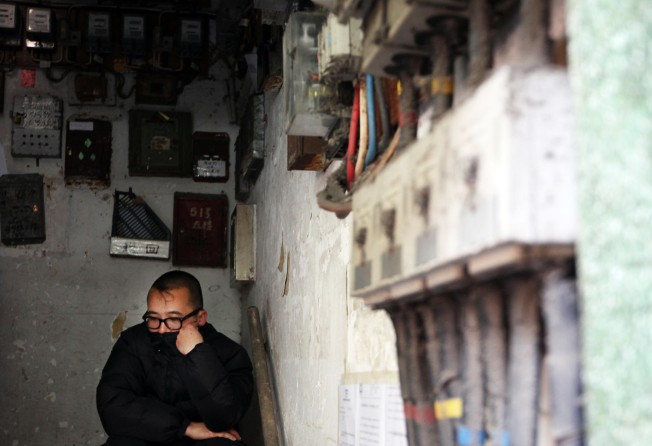
URA saves the day for 'danger' tenement owners
Authority will pay for demolition of four blocks condemned by Buildings Department and compensate owners with cash or new accommodation

The Urban Renewal Authority transformed into a white knight for owners who were ordered to demolish their dangerous homes, but the move could open the floodgates for more owners of dilapidated buildings to ask for redevelopment.

The URA's move will free owners from the cost of demolition, and they will also get cash compensation equivalent to the value of a flat in a seven-year-old building in the same district or a new flat of the same price.
It is understood that the authority's board members had asked to talk with the government on ways to address future financial risks, including whether the authority should still adhere to prudent commercial principles when selecting projects.
Board members' worries are evidenced by an authority survey, which found half of the city's 5,000 buildings that are 50 years old or above were either in poor condition or faced difficult repair problems. The figure is expected to increase by 500 every year and will reach 16,000 by 2030.
"It rang alarm bells over whether the authority can be financially sustainable in the long run," a source close to the board said. "Many of the demand-led projects are not attractive to private developers as there will be little room to increase the density in future developments."
Residents of 41, 43, 45, 47 and 49 to 51 Kai Ming Street applied for the demand-led redevelopment scheme in September - whereby owners can initiate redevelopment if more than two-thirds of them agree to it and the site is larger than 400 square metres - a month after the Buildings Department found the balconies of 51 could collapse and evicted its residents. Further investigation by the department found three more blocks - 45, 47 and 49 - were also structurally poor. It said the four blocks must be demolished for public safety.
The HK$600 million project will affect about 64 households and 10 shops. The new development will comprise 72 flats and a commercial area with 300 square metres of community facilities.
The authority's managing director, Iris Tam Siu-ying, said the application was accepted according to normal screening procedures. She did not agree that helping owners to avoid the demolition order would set a bad precedent or discourage owners from maintaining their properties: "We had already selected the project from among 51 applications. Instead of waiting for the next financial year, we will launch it earlier, so residents will be less worried," she said. She said the URA would distinguish qualified applicants from those who purposely ignored repair orders and waited for redevelopment.
Real estate professor at the University of Hong Kong, Chau Kwong-wing, said the case in To Kwa Wan could just be the beginning for the authority: "Buildings of similar ages with similar problems will surface soon. Can the authority cope with them if it continues to be self-financing?"